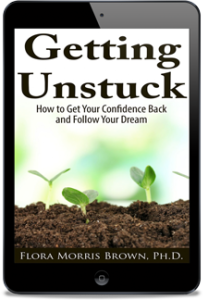Are you one of those people who waits for permission to do what’s good for you?
Or even worse, do you wait until a huge health challenge puts you down before you change your habits?
Whichever is the case, use World Sauntering Day to slow down to enjoy the scene rushing past you called “your life.”
Your doctor will be proud of you.
Your body and mind will thank you.
Best of all, it’ll make you happier. One of the key factors reported to create happiness is slowing down to savor our food, listen to the sounds around us, and appreciate the beauty of nature.
Contrary to what you might think, stepping out of your usual routine and slowing down to saunter stimulates your creativity and makes you more productive when you return to work.
World Sauntering Day, celebrated on the 19th of June, is believed to have begun in the 1970’s at the Grand Hotel on Mackinac Island in Michigan. This hotel claims to have the longest porch in the world, at 660 feet long, so it makes sense that lots of sauntering took place here.
Don’t live in Michigan? How about checking out other great sauntering opportunities taking place at other times throughout the year?
- The Great Saunter, a 32 mile walk around Manhattan’s Shoreline is an annual event. More than 1200 participants travelled at 3MPH on completed this walk on Saturday May 2, 2015. If you missed this event, check out Shorewalkers.
- Shorewalkers, a group devoted to protecting New York’s shorelines, hosts multiple hikes nearly every weekend. Get details at http://www.shorewalkers.org/ and learn about Cyrus Adler, its creator.
- Google “great places to walk in [your area] “, search on meetup.com, and find ideas from Yelp.com reviews and articles pointing you to beaches, river walks, parks, nature centers, national parks and more.
- If you don’t live near any of the suggested locales, take a walk around your neighborhood or walk the perimeter of the local mall.
Henry David Thoreau, American poet, author, abolitionist and naturalist, was fond of walking, particularly sauntering. Here’s a small part of what he had to say
I have met with but one or two persons in the course of my life who understood the art of Walking, that is, of taking walks, who had a genius, so to speak, for sauntering; which word is beautifully derived “from idle people who roved about the country, in the middle ages, and asked charity, under pretence of going à la sainte terre” — to the holy land, till the children exclaimed, “There goes a sainte-terrer“, a saunterer — a holy-lander. They who never go to the holy land in their walks, as they pretend, are indeed mere idlers and vagabonds, but they who do go there are saunterers in the good sense, such as I mean. Some, however, would derive the word from sans terre, without land or a home, which, therefore, in the good sense, will mean, having no particular home, but equally at home everywhere. For this is the secret of successful sauntering. He who sits still in a house all the time may be the greatest vagrant of all, but the Saunterer, in the good sense, is no more vagrant than the meandering river, which is all the while sedulously seeking the shortest course to the sea. But I prefer the first, which indeed is the most probable derivation. For every walk is a sort of crusade, preached by some Peter the Hermit (1) in us, to go forth and reconquer this holy land from the hands of the Infidels.
Enough talking about slowing down. Let’s get to it. What are your favorite places to saunter? If you plan to begin slowing down where do you think you’d like to begin? Share in the Comments.
Originally published in 2013. Updated 8/12/19,




Recent Comments